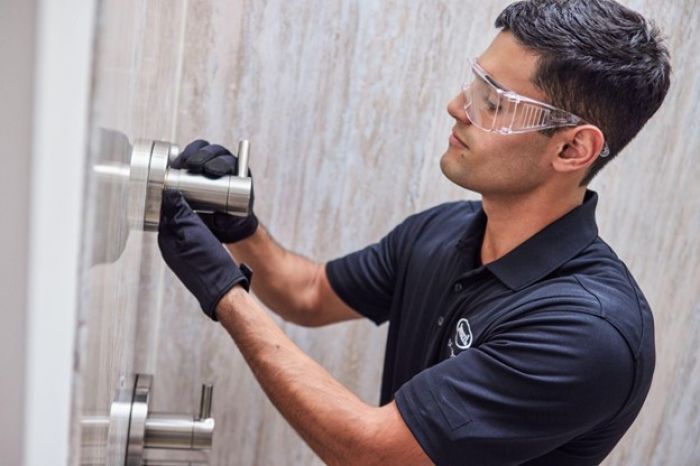
True luxury living is not defined by price but isn’t cheap. Only a few people can spend large sums on prestigious goods and services. The appeal of these products is undeniable – excellent quality, a recognizable logo, a limited edition. But in a world where Instagram and other social media show people enjoying luxury items daily, it may be very tempting to spend money we don’t have.
One-click of a button, and you’re already the owner of a new credit card or loan that can help you buy a new gadget or go on a dream vacation. But before deciding, it’s important to consider whether the fleeting pleasure is worth future debt problems.
Instant Gratification: A Double-Edged Sword
The appeal of buying an expensive, luxury item without saving for months or even years is undeniable. Credit cards, personal loans, and $1,500 same-day loans make it easy to purchase everything you want immediately. These financial tools can be extremely handy in emergencies. For example, payday loans are a lifeline for many people when they need quick cash for essentials rather than a fancy new handbag.
However, using loans can be slippery when buying unnecessary luxury items. According to a 2022 Federal Reserve study, the average credit card debt per U.S. household is about $6,065. High interest rates, especially on credit cards, can significantly increase the cost of a luxury purchase over the long term, sometimes doubling or tripling the original cost.
Social media is full of people chasing the image of wealth, often at the expense of their finances. More and more influencers have been found renting expensive items, from designer bags to luxury cars, just to take photos. This trend is causing regular people to feel pressured, leading many to take out loans or max out their credit cards to afford things they don’t need.
The story of Anna Delvey, also known as Anna Sorokin, is a good example of the dangers of living on borrowed money. In the mid-2010s, she fraudulently presented as a wealthy heiress in New York City. Delvey stayed in expensive hotels and flew on private jets, promising she would soon receive an inheritance to pay off her debts. She lived on loans and deception, and her scam was uncovered in 2017 after she defrauded people and financial institutions of $275,000.
Another famous case is Danielle Miller, an Instagram influencer who lived a lavish lifestyle but on other people's money. During the COVID-19 pandemic, she used stolen credentials to obtain Paycheck Protection Program (PPP) loans and spent almost $1.5 million on expensive travel and clothing. This case shows how people sometimes pursue an unattainable lifestyle using loans and deception.
Why Is It Often a Bad Idea to Buy Luxury Items on Tick?
The first problem is high interest rates. The average credit card interest rate (APR) in the U.S. hovers around 20%, meaning that if you don’t pay off that luxury purchase by the end of the billing cycle, you could end up paying much more than the item's retail price. A $3,000 designer bag bought on credit could cost more than $4,000 if the balance is paid off over several years due to compound interest.
Plus, luxury items tend to depreciate. Electronics, fashion, and even cars lose value when they leave the store. You could pay off the debt long after the item has lost its appeal or market value.
Strategic Spending: When Luxury Makes Sense
It is important to understand that not all luxury spending is pointless - in some situations, it can be justified and even strategically useful. For example, appearance matters for real estate, finance, or law professionals. Expensive suits, accessories, and watches often become part of an image that conveys success and confidence. The Nevada Today’s research shows that a professional appearance can increase clients' trust and improve a specialist's perception as successful and influential, positively affecting closing deals and career development.
Some luxury categories, such as watches, jewelry, bags, or cars, can be considered an investment. Unlike most consumer goods that lose their value over time, rare or exclusive luxury items can increase their cost. For example, brands such as Rolex or Patek Philippe produce watches that retain their value and increase in value on the secondary market. The same goes for some bags, like the Hermès Birkin, which also increases in value over time due to rarity and demand. Of course, buying these items requires a deep knowledge of the market and an understanding of how luxury investing works, but if done right, it can be a smart deal.
Make Wise Decisions in a Wealth-Obsessed World
It’s clear that using borrowed funds to buy luxury is a sharp, double-edged sword. Sometimes, it can make sense, especially when done strategically and responsibly. However, the temptation to live beyond your means, especially in the age of Instagram and TikTok, can lead to financial ruin. According to a 2023 Bankrate survey, one in five consumers (20%) said they were unhappy with their finances after seeing posts on social media. Moreover, 9% say that social media influences have negatively impacted their ability to manage their money.
So before making any luxury purchase on credit, it’s important to ask yourself: Will this item improve my life in the long run? Or am I buying it to fit someone else’s idea of ??success? Financial experts advise adhering to the “50-30-20” rule — no more than 30% of your budget should be allocated to discretionary spending, including luxury items.
Conclusion
Purchasing luxury items on credit isn’t always bad but requires careful consideration and planning. Whether using a credit card for a vacation or taking out a personal loan to buy a designer piece, it’s important to understand the financial implications and avoid getting caught in a cycle of debt.
Responsible use of loans, especially those designed for emergencies, such as payday loans, can be a smart financial tool when managed wisely. However, chasing a life of luxury at the cost of your financial future isn’t worth the price – especially when so much of what we see online is just an illusion. By keeping your desires in check and your finances in order, you can enjoy the finer things in life without sacrificing your financial stability.














